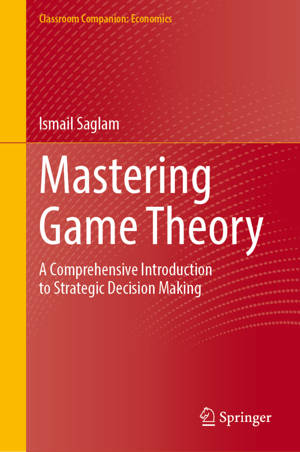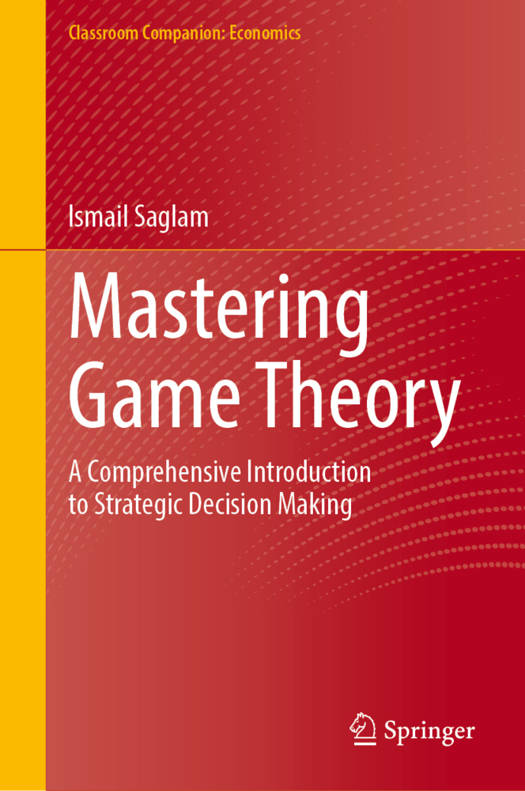
- Afhalen na 1 uur in een winkel met voorraad
- Gratis thuislevering in België vanaf € 30
- Ruim aanbod met 7 miljoen producten
- Afhalen na 1 uur in een winkel met voorraad
- Gratis thuislevering in België vanaf € 30
- Ruim aanbod met 7 miljoen producten
Omschrijving
This book offers a comprehensive and accessible introduction to game theory, emphasizing both noncooperative and cooperative aspects of strategic decision-making. In the chapters on noncooperative game theory, you will explore advanced topics such as perfect equilibrium, evolutionary stable strategies, and correlated equilibrium, along with a range of subjects often underrepresented in other textbooks.
The cooperative game theory sections cover essential topics like coalitional games, cake-cutting and fairness, cooperative bargaining, and matching theory. Additionally, the book includes an insightful chapter on mechanism design.
Designed for use in one-semester advanced undergraduate or graduate-level courses, this textbook stands apart from others at the same level. Each chapter begins with clear theoretical definitions, followed by carefully detailed examples. Select chapters include propositions that either demonstrate the existence of equilibrium in abstract games or interrelate various game-theoretic concepts.
While rigorous in its scope, the book assumes no advanced background in calculus or algebra. The mathematical exposition is kept as straightforward and self-contained as possible, ensuring that readers can easily apply theoretical ideas to practical examples and follow proofs with ease.
Specificaties
Betrokkenen
- Auteur(s):
- Uitgeverij:
Inhoud
- Aantal bladzijden:
- 287
- Taal:
- Engels
- Reeks:
Eigenschappen
- Productcode (EAN):
- 9783031820939
- Verschijningsdatum:
- 1/06/2025
- Uitvoering:
- Hardcover
- Formaat:
- Genaaid
- Afmetingen:
- 165 mm x 237 mm
- Gewicht:
- 671 g

Alleen bij Standaard Boekhandel
Beoordelingen
We publiceren alleen reviews die voldoen aan de voorwaarden voor reviews. Bekijk onze voorwaarden voor reviews.









